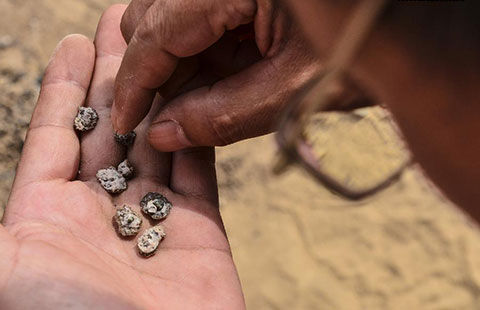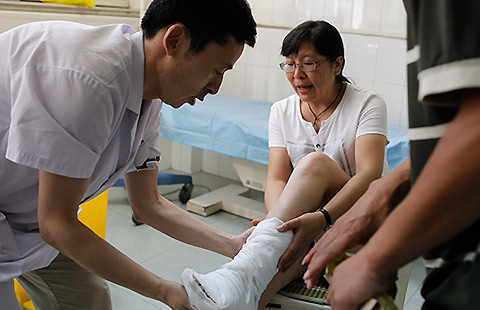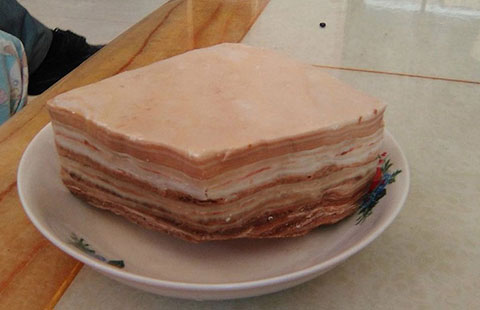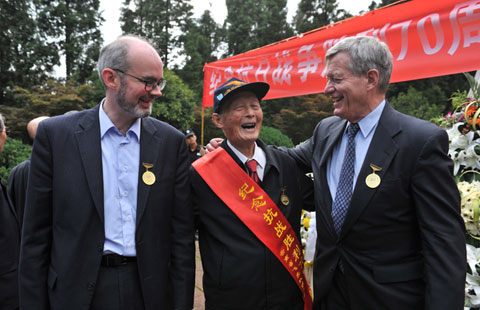

China's fourth manned spacecraft lifted off at 6:37 pm on Saturday, sending its first female astronaut into space and history. [Special coverage]
Shenzhou IX, carrying female astronaut Liu Yang and male astronauts Jing Haipeng and Liu Wang, blasted off from the Jiuquan Satellite Launch Center in Gansu province into a blue sky.
The crew will stay in space for more than 10 days, during which time they will perform scientific experiments and the country's first manual space docking - a highly technical procedure that brings two vessels together in high-speed orbit.
Successful completion of the space rendezvous and docking - which will see Shenzhou IX attach itself to the Tiangong-1 module currently orbiting Earth - will take China one step nearer to setting up its own space station in 2020.
At the Beijing Aerospace Control Center on Saturday, hundreds of scientists monitored and reported the spacecraft's status every few seconds. Big screens showed the three astronauts smiling and waving at the monitoring camera when the carrier rocket blasted off.
At 6:47 pm, Shenzhou IX entered its orbit. Chang Wanquan, chief commander of the country's manned space program, announced that the lift-off had been a complete success.
 |
|
A TV grab shows three astronauts waving to the camera during the launch, June 16, 2012. [Photo/Xinhua] |
Wu Bangguo, chairman of the National People's Congress Standing Committee, who was watching the launch at the Jiuquan Satellite Launch Center, congratulated the space scientists for the successful lift-off.
And State Councilor Liu Yandong read a congratulatory letter from President Hu Jintao, who is in Denmark for a state visit, saying that: "I feel very glad to hear of the success of launching the Shenzhou IX manned spacecraft and I would like to extend warm congratulations and sincere regards to all those participating in the research and tests (of the country's space program)."
The rendezvous and docking between the Shenzhou IX spaceship and the orbiting space lab module Tiangong-1 will mark a major breakthrough in the country's manned space program, Hu said in the letter.













